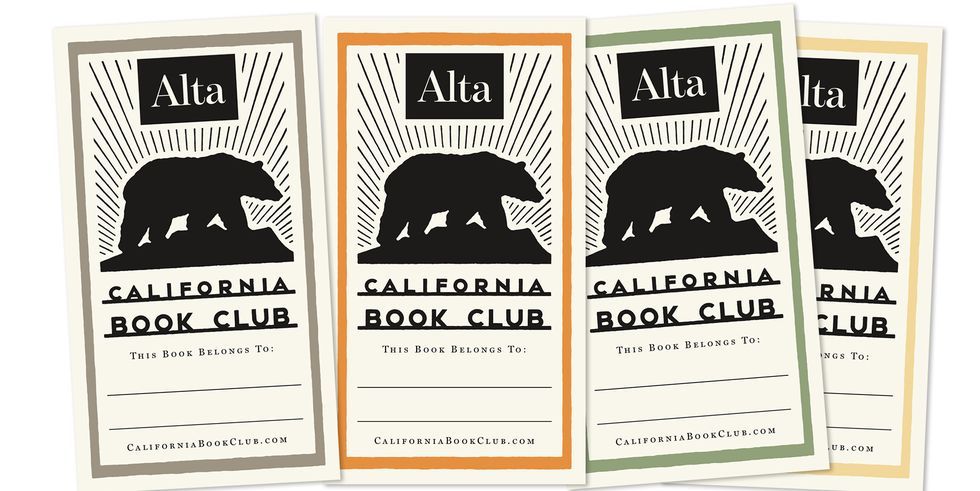These days, technological advancements can leave us questioning whether they’re putting us on a path to a better society or a dystopian hellscape that will be ruled by authoritarian capitalists. It’s a constant conundrum—and, both terrifying and fascinating, a great talking point at parties. The hottest new developments often have a dark side: AI chatbots could escalate the spread of propaganda and eradicate jobs overnight; surveillance technology is used to commodify sensitive personal data. Dystopian-tech fiction thrives because of the broad imaginary terrain that these advancements afford. Novels allow our minds to consider far reaches and worst-case scenarios, made all the more compelling when they draw from our shared reality. But if this genre was all doom and gloom, it would lose its appeal.
That is why books like Jennifer Egan’s The Candy House—October’s California Book Club selection—stand out. The novel refuses to be contained, in its form or its perspective. Its characters interact with futuristic technology, and they are just as complicated and multifaceted as the technology itself. But The Candy House is not just about one big thing—there are many changes afoot in the world Egan creates.
The catalyst for the events of the book is a social network that allows users to upload their entire memories for their own viewing and for that of others. The technology is called Own Your Unconscious. It’s seen as an invasive form of surveillance by some, but it presents an opportunity to others. Those who view Own Your Unconscious favorably see potential to recover the memories of patients who are fading from Alzheimer’s; to allow generations to revisit their family history; to use memories uploaded to an ancillary feature, an online network called Collective Consciousness, to solve crimes and to find missing persons. The first character we meet is Bix Bouton, the creator of the technology and the head of the company that runs it, Mandala. Separate and connected narratives throughout the book introduce readers to many other characters as well: Miranda Kline, an anthropologist who developed the theory that would create Mandala’s Own Your Unconscious, to her dismay; Bennie Salazar, a music executive; Lulu Kisarian, a secret agent entangled in an international conflict; and many more.
It can be dizzying to trace the connections among characters, especially in a fictionalized world; the map of personalities that Egan creates in her ensemble is complex and deep. But it is worth it to search for the connections. Some of the characters will be familiar to fans of Egan’s work—Salazar and his mentor, Lou Kline, are main characters in the 2010 book A Visit from the Goon Squad, and they reappear in this cast. Egan has said that she began working on what became The Candy House during the book tour for A Visit from the Goon Squad, a decade before the later novel was released. It is the nature of fiction writing that a character’s potential path exceeds what an author can express within the limited window of a single book. In The Candy House, Egan allows readers to glimpse a bit more and imagine themselves more clearly in her wide world.
A Visit from the Goon Squad is famous for including a 70-page chapter made of PowerPoint slides. Egan is experimental. She has fun playing with different forms, but she always has a purpose. The Candy House features chapters in emails, instructions in twin columns, human interactions as formulas, and stream-of-consciousness thoughts from an adolescent. Her characters view and process the world in unique ways; why constrict them to a singular form of writing?
The Candy House was released in April 2022; in November of that year, the public gained access to ChatGPT, and artificial intelligence chatbots began to integrate themselves into everyday tasks. Tools like these pose an existential threat to writing as we know it. But consider writing a PowerPoint chapter from the point of view of two children that generates original personalities and background stories about the characters: Could a chatbot do that? Could it switch from point of view and perspective with dexterity and development and create a plot that turns propulsive?
In the face of real-life advancements like ChatGPT, technology can feel like its own beast, and a dystopian society feels much closer than a utopian one. But Egan, to her credit, refuses to corner her book, refuses to shape it as dystopian fiction. “I don’t like the feeling that the best is already over in a world,” Egan says. “And to me, that’s what dystopia basically says. We’re kind of stumbling around in the wreckage, trying to make things work.”
With her mastery of character and world-building, Egan is far past simply making things work. She is still innovating.•
Join us on October 19 at 5 p.m., when Egan will appear in conversation with California Book Club host John Freeman and a special guest to discuss The Candy House. Register for the Zoom conversation here.
WHY READ THIS
Alta Journal books editor David L. Ulin recommends The Candy House as a novel that challenges and reframes our sense of narrative. —Alta
EVENT RECAP
If you missed the Kelly Lytle Hernández CBC event last week, you can watch it or read a recap. —Alta
DRAMA OF THE WRITTEN WORD
CBC host John Freeman writes about the striking characters of Bad Mexicans, whose letter writing, publishing, and organizing helped fuel the Mexican Revolution. —Alta
THE ROAD TO CHAPEL PERILOUS
Ulin reviews Joshua Mohr’s new novel, Farsickness, which is illustrated by Mohr’s daughter, Ava. —Alta
TRICKS TO WRITING
Author Mason Currey (Daily Rituals: How Artists Work) identifies the building blocks of ideal writing routines—as well as their central paradox. —Alta
LEGEND OF INDEPENDENT BOOKSELLERS
Neal Sofman, who co-owned CBC partner Bookshop West Portal (and previously, a Clean Well-Lighted Place for Books) in San Francisco, died at age 75. —San Francisco Chronicle
Alta’s California Book Club email newsletter is published weekly. Sign up for free and you also will receive four custom-designed bookplates.



















